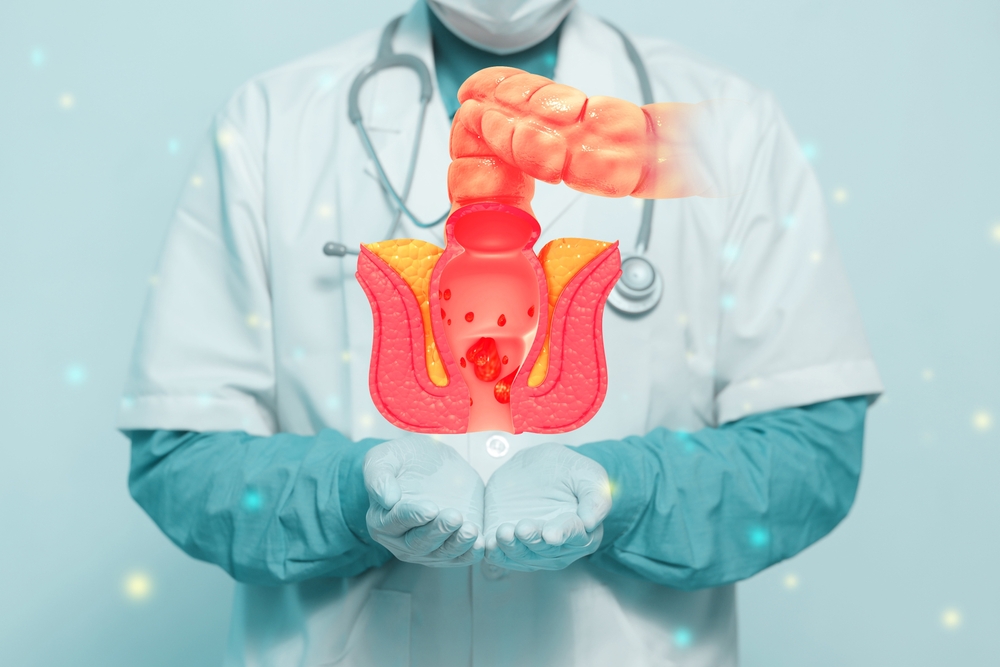Home
/
Symptoms
/
Itching or Bleeding From the Genitals or Rectum – Causes, Diagnosis, and Treatment
Itching or Bleeding From the Genitals or Rectum – Causes, Diagnosis, and Treatment at Emirates Hospitals Group
Itching or bleeding from the genitals or rectum is a common concern that can significantly impact one’s quality of life. These symptoms can be caused by a range of conditions, some of which may require medical intervention. A thorough evaluation is essential to determine the underlying cause and provide appropriate treatment.
Causes of Itching or Bleeding from the Genitals or Rectum
- Hemorrhoids: Hemorrhoids are swollen veins in the rectum or anus, causing itching, discomfort, and bleeding, particularly during bowel movements. They are often caused by straining, pregnancy, or chronic constipation.
- Anal Fissures: An anal fissure is a small tear in the skin around the anus that can cause pain, bleeding, and itching. These fissures are often a result of passing large or hard stools.
- Infections: Infections like yeast infections, bacterial vaginosis, sexually transmitted infections (STIs), or parasitic infestations (such as pinworms) can cause itching or irritation in the genital or rectal area. STIs may also lead to bleeding, especially during intercourse.
- Allergic Reactions: Allergic reactions to soaps, lotions, or hygiene products can cause irritation and itching in the genital or anal areas. In some cases, allergic reactions may also lead to skin rashes and bleeding if the area is scratched excessively.
- Skin Conditions: Conditions like eczema, psoriasis, or dermatitis can cause itching in the genital and rectal regions. These conditions may cause red, inflamed patches of skin that can crack or bleed.
- Proctitis: Proctitis is inflammation of the lining of the rectum, often caused by infections, inflammatory bowel disease (IBD), or radiation therapy. It can lead to rectal bleeding and itching.
- Vaginal or Rectal Cancer: Although less common, cancer affecting the genital or rectal area can cause symptoms like itching, bleeding, and discomfort. Early detection through screening is essential for effective treatment.
- Poor Hygiene: Improper hygiene or excessive cleaning in the genital or anal areas can irritate the skin, leading to itching or even small tears that may bleed.
- Hormonal Changes: In women, hormonal changes during pregnancy or menopause can lead to vaginal dryness and irritation, causing itching or discomfort. These changes can also affect the sensitivity of the anal area.
Diagnosis of Itching or Bleeding from the Genitals or Rectum
Diagnosing the cause of itching or bleeding requires a detailed medical history and thorough physical examination. Diagnostic procedures may include:
- Physical Examination: A doctor will perform a physical exam to assess visible symptoms such as swelling, redness, or lesions. For rectal bleeding, a rectal exam may be performed.
- Blood Tests: Blood tests may be recommended to check for infections, anemia (if bleeding is significant), or other underlying conditions like inflammatory bowel disease (IBD).
- Stool Sample: If an infection is suspected, a stool sample may be taken to check for parasites or bacterial infections that could be causing rectal symptoms.
- Swab Tests: For suspected infections, swab tests may be conducted to identify bacterial, fungal, or viral pathogens.
- Colonoscopy or Sigmoidoscopy: If rectal bleeding or severe anal pain is present, a colonoscopy or sigmoidoscopy may be performed to examine the colon and rectum for conditions like hemorrhoids, anal fissures, or inflammatory bowel disease.
- Pap Smear or STI Testing: For women experiencing genital itching or bleeding, a Pap smear or STI testing may be conducted to check for infections or abnormal cell changes in the cervix.
- Biopsy: If there are signs of skin lesions, cancer, or unhealed sores, a biopsy may be performed to assess tissue for cancerous or pre-cancerous cells.
Treatment for Itching or Bleeding from the Genitals or Rectum in Dubai
Treatment for itching or bleeding in the genital or rectal area depends on the underlying cause and may involve medications, lifestyle changes, or medical procedures. Common treatments include:
- Topical Medications: For conditions like hemorrhoids, dermatitis, or yeast infections, topical creams or ointments can help soothe irritation and reduce itching. Steroid creams may also be prescribed for inflammatory skin conditions.
- Suppositories: For hemorrhoids or proctitis, suppositories can be used to deliver medication directly to the affected area, providing relief from pain, itching, and inflammation.
- Oral Medications: Oral medications, such as antibiotics, antifungals, or pain relievers, may be prescribed to treat infections, ease discomfort, or manage inflammation. Anti-inflammatory drugs may also be prescribed for conditions like proctitis or IBD.
- Surgical Treatments: In severe cases of hemorrhoids or anal fissures, surgical intervention may be required to remove the affected tissue or repair the fissures. For cancer or precancerous lesions, surgery, radiation, or chemotherapy may be needed, depending on the stage of the disease.
- Cryotherapy or Laser Treatment: For certain conditions like warts or skin lesions, cryotherapy (freezing) or laser treatment may be used to remove abnormal growths and reduce irritation.
- Hormonal Therapy: For women experiencing vaginal dryness or discomfort due to hormonal changes, vaginal moisturizers or estrogen therapy may be recommended to restore moisture and alleviate irritation.
- Lifestyle and Hygiene Modifications: Improving hygiene practices and avoiding irritants like harsh soaps or perfumes can help prevent further irritation. Eating a fiber-rich diet, drinking plenty of fluids, and practicing good toilet habits can prevent hemorrhoids and anal fissures.
- Behavioral and Dietary Changes: Maintaining a healthy weight, avoiding prolonged sitting, and eating a balanced diet rich in fiber can help reduce the risk of conditions like hemorrhoids, constipation, and anal fissures.
Related Treatments



